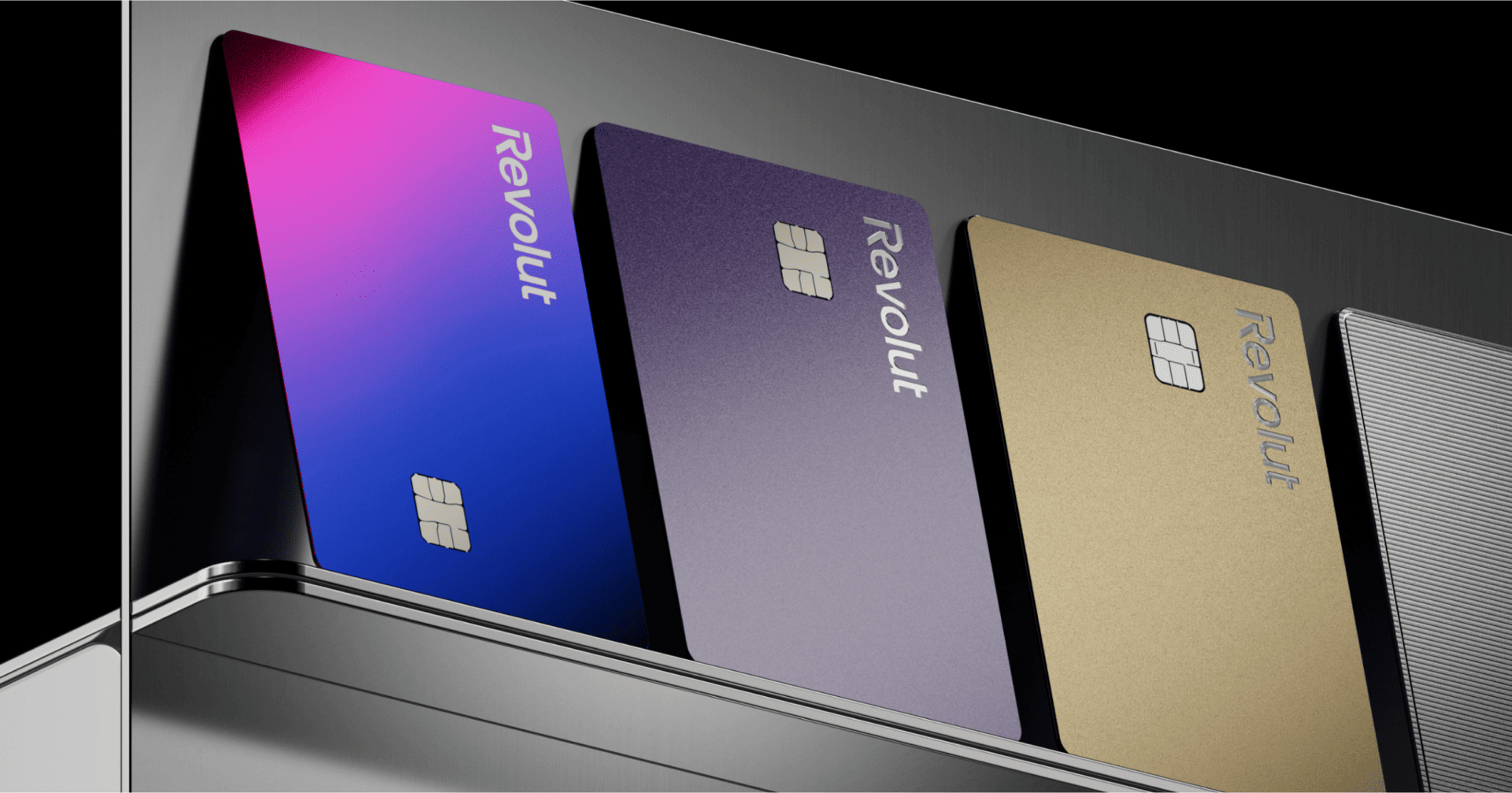If you’re trying to figure out which bank accounts in Germany are actually worth it, you’re in the right place. This guide compares the top bank accounts for earning interest on your savings, freelance or self-employment income and international transfers. If you’re looking for best everyday current accounts with high welcome bonuses, you can find them in this article.
Note: this article contains affiliate links, which are marked with *.
In This Guide
Best Bank Accounts for Your Savings in Germany
Many current accounts (Girokonto) in Germany already pay interest on your balance, so there is often no need to open a separate savings account. If you do want one, there are two main types: a Tagesgeldkonto (instant-access savings account) and a Festgeldkonto (fixed-term savings account). Tagesgeldkonto lets you earn interest while keeping your money available at any time — it’s a good option for short-term savings or an emergency fund. Festgeldkonto, where you lock money away for a set period, is going out of style, and the interest rates don’t seem to be higher than those in other types of accounts — that’s why the shortlist below doesn’t include any of those.
Opening a savings account will only make sense for you if you have large savings and you find an account that offers a significantly higher interest rate than your Girokonto. Unfortunately, most of these higher rates usually only last for a few months, so if you want to keep your savings in a high-interest rate account, you might have to move it around to take advantage of the best offers. I personally don’t bother and keep my savings at 2% in my everyday current account at Trade Republic*, but if you have larger savings, it might make sense for you.
Below are the banks that offer the best interest rate on savings in Germany right now, either in current or savings accounts.
BBVA
BBVA’s current account* is one of the most interesting new offers on the market right now. It’s completely free – no salary transfer requirements, no minimum balance – and comes with two strong perks: for the first six months, you get 3% interest on your account balance and 3% cashback on all card purchases made with the included free Visa debit card. The cashback is capped at €350 in spending per month, which means you can earn up to €10.50 monthly or €63 in total. The account includes a free debit card and can be opened and managed entirely online in English or German.
3% is one of the highest interest rates in Germany right now, so if you have a lot of savings, this account is really worth considering. After the first six months, both the interest rate and cashback drop — but the high-rate period still lasts longer than most competing offers that only give you 3-4 months of increased interest rates. Sign up here*.
Consorsbank
Consorsbank* currently offers 3.1% interest on savings up to €1 million with their Tagesgeldkonto, guaranteed for the first three months. The account has no fees, and interest is credited quarterly. Your money is available at any time. A free securities account is automatically included.
After three months, the rate adjusts to the standard one, so this is mainly a short-term opportunity. Once the three months are up, you can always move your money to another account. You’re eligible for the offer if you haven’t held any account with Consorsbank in the last six months. You can combine this offer with the €200 Consorsbank current account bonus* mentioned in the previous issue for an even better overall deal – just make sure to open the savings account first. Sign up for the savings account here*.
TF Bank
TF Bank* is a Swedish online bank that offers one of the better short-term savings accounts (Tagesgeldkonto) in Germany right now. The current annual interest rate is 3% for the first four months, after which it drops to 1.45%. Interest is paid monthly, and you can access your money at any time. The account is completely free to open and manage, and everything is online and available in English or German.
Since this is a savings account, and not a current one, it doesn’t come with a card – you simply move out your money to your other accounts whenever you need to. Your deposits are protected under the Swedish deposit guarantee scheme, which covers up to 1,050,000 SEK (roughly €90,000) per person – similar to the €100,000 protection in Germany. It’s a good option if you want to earn a bit more interest on your savings for a few months. Open your account here*.
Best Cards for Traveling and International Transfers
You don’t need to get a separate card just for traveling, even outside of the Eurozone – just use your everyday debit card that doesn’t charge foreign transaction (FX) fees. I mostly use Trade Republic* or N26* when I’m abroad, but you can check the fee list for any card you already have to make sure there are no extra charges for payments in foreign currencies.
That said, if you often send money abroad or exchange currencies for any other reason, it’s worth having an account that doesn’t punish you with poor exchange rates and hidden fees. Two services that work particularly well for this are Wise* and Revolut*. Both come with a debit card, let you hold money in multiple currencies, and give you better exchange rates than most traditional banks in Germany.
Wise
Wise* (formerly TransferWise) gives you a free multi-currency account (40 currencies available), has good rates for currency exchange and low international transfer fees. You can see the exact cost before confirming any transfer.
The account itself is completely free, and you can order a debit card for a one-time fee of €7 (or get it for free if you use the link below). The Wise card is handy for ATM withdrawals abroad, especially when traveling outside the Eurozone, and you can use it for payments in any currency — it automatically uses your balance in that currency or converts at the best available rate. You can get either a free card or a free international transfer of up to €595 when you sign up with this link*.
Revolut
Revolut* also lets you hold multiple currencies and make international transfers directly from the app. You can send money abroad in over 25 currencies, and transfers to other Revolut users arrive instantly. The exchange rate is very competitive during weekdays, though small markups apply on weekends and for larger transactions. The free plan covers most needs, and the debit card is also free (you just pay €6–€12 for delivery). If you travel or send money internationally often, Revolut is a convenient all-in-one option that combines banking, payments, and transfers in one sleek, beautiful app. Sign up here*.
Best Business Bank Accounts for Freelancers and Entrepreneurs in Germany
You don’t have to open a separate business bank account in Germany if you’re freelancing or are self-employed – but keeping business and private money separate can make life easier. It helps with accounting, tax reporting, and staying organized – especially once invoices start flowing in and out.
Qonto
If you’re looking for a modern business account, Qonto* is one of the best options right now. It’s not technically a bank but a licensed payment institution: customer deposits are held with Qonto’s partner bank, Crédit Mutuel Arkéa, and protected up to €100,000 under the French deposit guarantee scheme. In everyday use, though, it works just like a digital bank.
Qonto plans normally start at €11 per month, but until December 5, freelancers and solo entrepreneurs can open the Basic plan for €0 per month for the first six months. If you’re launching a GmbH or UG, there are also special founder packages from €99 that help with the formation and capital deposit.
With Qonto, You get a German IBAN, Mastercard cards, and integrations with tools like DATEV and Lexware for easy bookkeeping. The app and web interface are clean, intuitive, and available in English. Lots of freelancers I know use Qonto, and they seem to be enjoying it. Open your account here*.
Tide
Similarly to Qonto, Tide* isn’t technically a bank but a financial platform for the self-employed and small businesses. The accounts are provided by Adyen, a Dutch payment institution regulated by the Dutch National Bank and licensed to operate across the EU, with a €100,000 deposit protection. In practice, it works much like an online business bank account – you get a German IBAN, a free Debit Mastercard, and everything is managed in the Tide app.
What makes Tide stand out is that there are no monthly account fees (a rarity for business bank accounts in Germany) and a 3.5% interest rate on savings — that’s 1.5% base interest plus a 2% bonus until March 31. On top of that, you get a €100 welcome bonus after €400 in card payments in the first month if you sign up before November 17. Tide is a good option for freelancers or small businesses that want a modern account without fixed costs. Sign up here*.
Ad/Anzeige disclosure: This article contains affiliate links, which are marked with *. If you make a purchase through them, I’ll earn a small commission at no extra cost to you. This helps support the newsletter and keeps my content free. I only recommend products and services I’ve personally tried or thoroughly researched. Thank you for your support!



